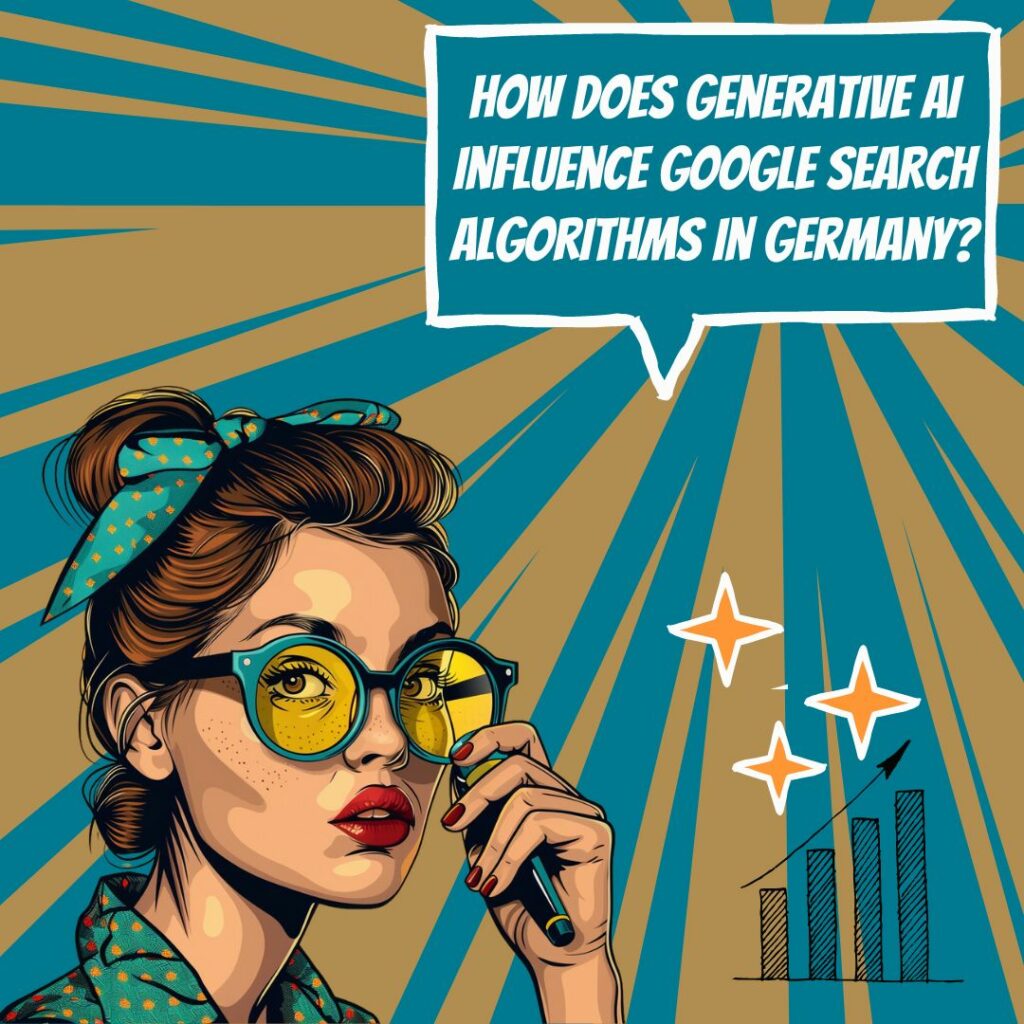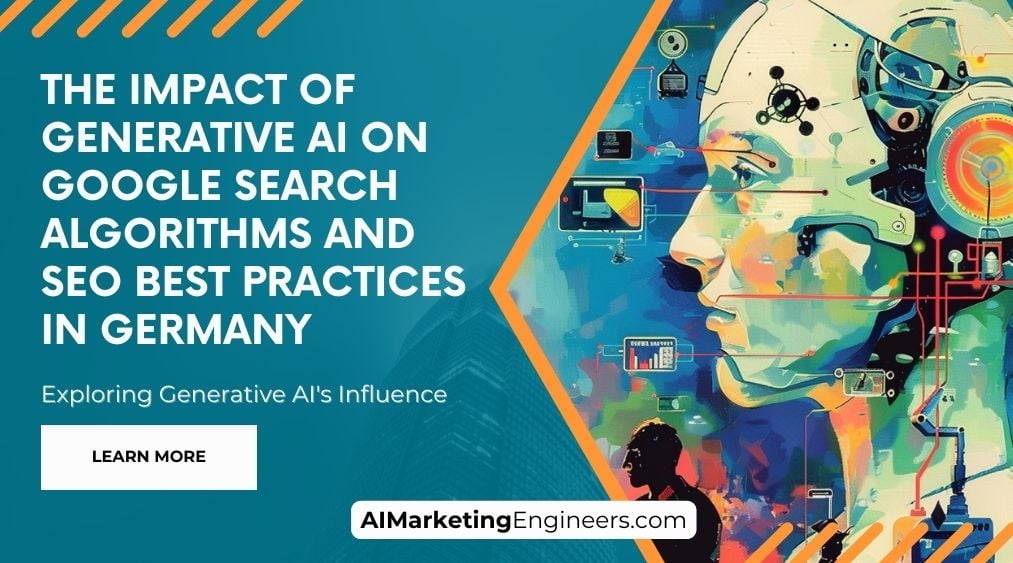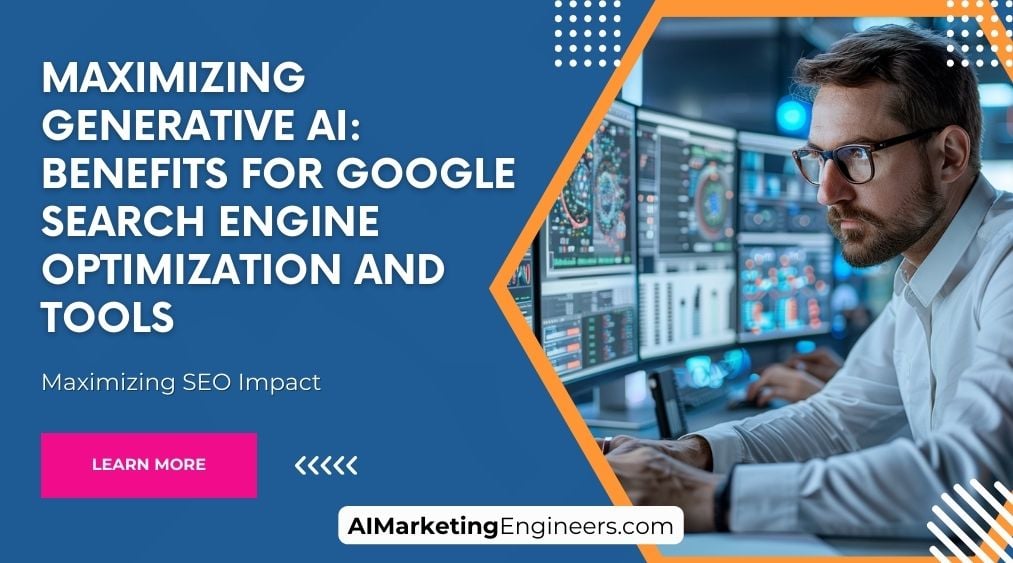Key Takeaways
✅ Generative AI Changes Search Experience: With Google's introduction of the Search Generative Experience (SGE), you can now get instant, contextual answers right at the peak of your search results. But here's the catch – this newer, smarter feature can affect how often your website is seen, potentially reducing organic traffic. Isn't it vital to see how this could change the game?
✅ Impact on SEO Strategies: As generative AI reshapes search engines, your online visibility could take a hit if your content blends into the AI crowd. The name of the game is originality and insight. Think about propping up your brand's unique voice on social media or blogs – could this be your key to standing out?
✅ Quality of Search Results: Have you found that searching online isn't what it used to be? You're not alone. Evidence is mounting that search quality might be slipping, cluttered with too many ads or low-value content. While generative AI could be a double-edged sword, bringing both innovation and misinformation, figuring out how to ensure reliable results is more crucial than ever.

Introduction
Ever wondered how the digital world whirls and changes right under our fingertips, particularly in the art and science of SEO? For business owners and digital marketers in Germany, the Impact of Generative AI Integration on Google Search Algorithms and SEO Best Practices is not just a trend – it's a seismic shift that's constantly evolving. How do we keep up with the pace?
Generative AI in Google Search is not just a new toy in the tech playground – it's a robust workhorse changing how we find what we need online. From flipping the script on SERP layouts to introducing Google's Search Generative Experience (SGE), we are looking at a fresh blueprint of search engine interaction.
The stakes are high in the digital marketing realm, with new practices to ensure that your business doesn't just survive but thrives. This article pulls back the curtain on next-level strategies, pushing the envelope on what it means to maximize engagement and drive results. Get set to embed fresh, actionable insights into your playbook and discover the future of SEO and Search in Germany. Ready to ride the wave of groundbreaking information?
Top Statistics
| Statistic | Insight |
|---|---|
| Zero-Click Searches: About half of Google searches were zero-click searches in 2022, increasing over time. | This trend highlights the shifting focus towards efficiency in user behavior and the critical need for businesses to optimize for visibility directly within search results. |
| Impact on Organic Traffic: Publishers' organic search traffic could decrease by 20% to 60% due to Google's Search Generative Experience. | Organic traffic is a lifeline for many websites, and such a significant drop could be a wake-up call for publishers to rethink their digital ad strategies. |
| SEO Strategies: Traditional SEO could be disrupted as generative AI pushes organic results further down the page. | The emerging technologies are setting new rules for how websites get noticed, signaling a paradigm shift in SEO approaches to maintain competitiveness. |
| Content Visibility: The changes in Google search will necessitate a major reevaluation in how brands make their content seen in search results. | Visibility now demands innovation and the ability to quickly adapt to a dynamic digital landscape, where creative content and strategic placement become key. |
| Optimization for SGE: Companies must optimize for the AI-powered Search Generative Experience or face significant traffic loss. | With traffic on the line, there's a clear need for companies to explore new SEO strategies that align with Google's evolving AI capabilities. |
Integration of Generative AI in Google's Search Algorithms in Germany
Google's search engine, the cornerstone of information retrieval, has been shaking things up by integrating generative AI into its complex algorithms. This update has revolutionized the way users interact with search results in Germany. Imagine being able to ask more nuanced questions and receiving answers that aren't just a list of links, but rather comprehensive, well-structured responses. That’s the power of AI at work. But what does this mean for businesses and websites that rely on Google search for visibility? Companies need to adapt quickly to maintain their search rankings and visibility. The integration of AI also means a shift in how SEO strategies are developed and implemented.
Understanding Google's Search Generative Experience (SGE)
Google's SGE is redefining how search queries are answered. Instead of simply matching keywords, it interprets the intent behind those keywords and generates contextual, conversational responses. It's like having a chat with a well-informed friend who can understand complex questions and provide thoughtful answers. With features like these, the SERP layout is becoming more dynamic, impacting how users engage with search results. This shift presents a unique challenge for websites to capture a user's attention. As a result, creating highly relevant and engaging content has become more critical than ever. Understanding user intent and tailoring content to meet those needs is essential for success in this new search environment.
Impact on SERP and Organic Traffic
The advent of SGE has caused a ripple effect, particularly on the SERP layout and site traffic. With Google providing instant answers, fewer people click through to websites, which can potentially lead to a decrease in organic traffic and lower click-through rates (CTR). The new layout might push down paid ads and organic listings, raising concerns for businesses about their online visibility and prompting them to rethink their marketing strategies. Businesses must explore new ways to attract visitors, such as optimizing for featured snippets and other rich results. Additionally, focusing on user experience and engagement metrics can help mitigate the impact on traffic and CTR.
SEO Strategies for the AI Era
Adjusting to the new normal means businesses in Germany must rethink their SEO strategies. Ranking high on Google now requires delivering unique insights and demonstrating thought leadership. Content quality is more crucial than ever, with a focus on providing expert knowledge that stands out. As AI continually evolves, so must the tactics employed to maintain visibility in the ever-competitive digital landscape. Leveraging data analytics and staying updated on algorithm changes will be vital for effective SEO strategies. Building strong backlinks and fostering a robust online presence can also enhance search rankings.
Combating AI-Generated Spam and Ensuring Search Integrity
In a digital age flooded with information, maintaining search integrity remains a top priority for Google. They are on the front lines, combating AI-generated spam which, if left unchecked, could compromise the quality of search results. Protecting the user's trust is paramount, and Google's robust measures ensure that genuine, valuable content reaches the end-user. This continuous battle highlights both the incredible capabilities and the potential perils found within the applications of AI. Website owners must also take responsibility by adhering to ethical SEO practices. Regularly updating and auditing content can help maintain its relevance and authenticity.
Future of SEO and Search in Germany
Looking ahead, the SEO landscape in Germany is poised for more changes as generative AI becomes increasingly sophisticated. Staying ahead of the curve involves keeping a pulse on the latest developments and understanding the role of generative AI in search. Companies should align themselves with emerging technologies to remain relevant and visible. Embracing thought leadership and high-quality content will be key to weathering the storm of this digital evolution. Investing in continuous learning and adaptation will help businesses navigate the evolving SEO landscape. Collaborating with SEO experts and leveraging advanced tools can provide a competitive advantage in the future.
AI Marketing Engineers Recommendation
Recommendation 1: Localize and Adapt Content for Nuanced German Market: Google's algorithms are increasingly sophisticated and able to distinguish valuable, high-quality content from the mediocre. With the integration of Generative AI, this trend will only escalate. If you're targeting the German market, you must ensure that content is not only translated but culturally and locally adapted. According to Statista, as of 2021, internet penetration in Germany was at 92% with a strong preference for local language content. Leverage Generative AI tools with advanced natural language processing capabilities to create content that resonates with the local audience, while maintaining SEO best practices such as keyword localization to maintain visibility in SERPs (Search Engine Results Pages).
Recommendation 2: Embrace Generative AI for Dynamic Content Creation: The fresh, updated content is a cornerstone of good SEO and Google's algorithms reward websites that offer regular updates. With the assistance of Generative AI, marketers can keep content dynamic and engaging. Current trends show a move away from static web pages to more interactive and personalized user experiences. Use Generative AI to craft content that adapts to user behavior and preferences – a method that could significantly enhance user engagement and time on site, two metrics that Google’s search algorithms tend to favor.
Recommendation 3: Invest in AI-Powered SEO Analysis Tools: Though Generative AI is becoming mainstream, human intuition and expertise remain valuable for fine-tuning marketing strategies. SEO analysis tools powered by AI can run a continual assessment of your SEO efforts and provide actionable insights, outperforming manual analysis by spotting patterns and predicting trends. Data from eMarketer indicates that spending on marketing analytics is increasing, with a push towards AI integration. Invest in these tools to gain a competitive edge, ensuring that your strategies are data-backed and future-proofed against upcoming shifts in Google’s search algorithms.
Relevant Links
- Unlock the Secrets of WeChat
- Master China's Short-Video Explosion
- Rise to the Top of German Search
- Harness Analytics for Smarter German Marketing
- Optimize Your Online Retail Strategy in South Korea
Conclusion
In wrapping up, the integration of Generative AI into Google Search is noticeably reshaping the SEO landscape in Germany. As search engines evolve to use AI in providing more contextual answers, it's clear that companies must rethink their strategies to remain visible on the search engine results pages (SERPs). With Google's Search Generative Experience (SGE) changing how users interact with search results and even pushing down traditional organic traffic sources, the emphasis shifts to creating content that is not just informative but uniquely insightful.
The implications are profound - businesses in Germany must pivot towards SEO strategies that prioritize genuine authority and thought leadership. This evolution also brings to light the importance of combating AI-generated spam to maintain the integrity of search results and, by extension, user trust. Moving forward, those who master the nuances of these changes, ensuring their content aligns with the increasingly intelligent algorithms while maintaining originality and depth, will see the most success.
Looking ahead, one thing remains abundantly clear: staying ahead of the curve is imperative. The evolution of generative AI within Google's search algorithms is not just a fleeting trend but a permanent shift in the digital marketing world. Embracing this change and the challenges it brings will be crucial for businesses seeking to secure their online presence in Germany's ever-competitive market. So, the real question for marketers and content creators is: Are you prepared to adapt and thrive in this new era of search?
FAQs
Question 1: What is generative AI in the context of search engines?
Answer: Generative AI is all about cutting-edge artificial intelligence that helps search engines not just dish out lists anymore but craft full-on responses, tailor results, and even whip up articles or summaries on the fly. Think of it like having a clever assistant within Google or Bing who's always ready to serve up info in a snap.
Question 2: How does generative AI change the way people access information?
Answer: Remember when we had to scour dozens of web pages to piece together answers? Well, generative AI is shaking things up. It's like having a high-tech helper that sifts through the clutter to provide quick, concise answers. This sometimes means less link clicking and more instant gratification.
Question 3: What is the significance of thought leadership in SEO with generative AI?
Answer: In a world where AI is churning out information left and right, standing out with genuine, original insights is key. Thought leadership carves a niche for that human touch in SEO, proving there's no substitute for real expertise.
Question 4: How does generative AI impact traditional SEO strategies?
Answer: Traditional SEO is feeling the squeeze as AI shimmies its way to the top of search pages, nudging organic results down the ladder. For brands, it's time to get clever and craft content that fills the gaps left by those AI-generated snippets.
Question 5: What are the new search features introduced by Google?
Answer: Google is on a roll, showing off shiny new toys like the Search Generative Experience (SGE), which puts AI's best answers upfront, and the Perspectives Filter, which amplifies voices from the real-life wizards in their fields.
Question 6: How does AI-generated content affect SEO and content quality?
Answer: With AI pumping out content, there's a risk of the internet becoming a junkyard of low-quality blabber. Google's on a mission to hunt down spammy AI content to keep search results relevant and high-grade.
Question 7: How can companies optimize their websites for AI-driven search engines?
Answer: Companies are wise to double down on unique, thought-leading content that holds its own against the AI onslaught. It's about blending in with the robots while standing out with human smarts to climb those search rankings.
Question 8: What strategies should be used to improve digital marketing with AI integration?
Answer: The smart money's on fusing search engine optimization with snazzy search engine advertising to charm both AI engines and humans. Customizing user experiences is also a surefire winner in this brave new AI-driven landscape.
Academic References
- Torque Mag. (2023). 8 Ways Generative AI Will Have an Impact on Search and SEO. This source discusses the significant role generative AI is expected to play in the evolution of search engines and search engine optimization (SEO), emphasizing the necessity for website owners to revise their strategies in response to AI-enhanced content optimization, analytics, and user experience improvements.
- Generative AI in Google Search: A New Era in SEO. LinkedIn. This article underscores the transformative impact that generative AI is set to have on Google Search and SEO practices, highlighting the shift towards optimizing for new AI-driven search functionalities and adapting to the evolving search landscape.
- Patel, N. (2024). The Profound Impact of Generative AI in Search. Neil Patel Blog. Neil Patel explores how generative AI may lead to reduced organic traffic and emphasizes the growing importance of leveraging alternative channels and creating differentiated content. The article suggests that SEO will need to refocus on ensuring visibility in AI-dominated search outcomes.
- CMI Media Group. (2024). Generative AI to Have Massive Impact on Search. This source offers insights into how the integration of generative AI into search engines could enhance the processing of complex queries and deliver more comprehensive and exact responses, consequently mandating significant adjustments in SEO strategies aimed at AI-optimized search results.
- Generative AI's Impact On Google Search Engine. LinkedIn. This article examines the challenges Google faces in keeping up with the rapid advances in generative AI technology, especially within its search function. It highlights the resultant substantial shifts in the operations of search engines and the formulation of SEO strategies.












